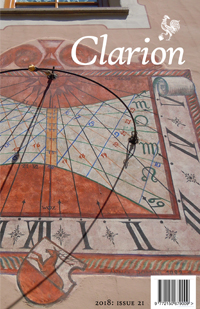|
Chukwuebuka Ibeh
The market along Afikpo Street, on Saturdays, had the breathless feel of wonder. And on this day, Zimchi took the public taxi to the market to buy foodstuffs. Makeshift stalls stood in haphazard rows on both sides, taking up pedestrian lane and edging dangerously close to the main road, narrowing all the more the already narrow street and stuffing the air with the unpleasant smell of freshly slaughtered meat and rotting vegetables. The uncovered gutter in front of the stalls swarmed with healthy looking flies that always perched on the slabs of meat and frozen chicken displayed on wooden tables and Zimchi's first instinct, always, was to bend over and throw up. The traders too had a certain eagerness that disoriented her and everyone and everything else were uniformed in their briskness in a way that highlighted Zimchi's difference. But food stuffs were cheaper here, far cheaper than the chemically grown things in glossy packaging that adorned the shelves in the mini market in GRA where the wives of important men did their shopping, parking their latest cars on the side of the smooth, tarred roads. The market in Afikpo sprang to life with marvelous ease. Here, laughter floated easily, everyone seemed buoyed with uniform contentment. The market reeked of hustle. This was Port Harcourt after all and one had to hustle. It reeked, also, of melodrama, of startling improbabilities. Once, a well dressed woman dangling a set of car keys had been apprehended while trying to steal foodstuffs from another shopper, and would have been stripped naked but for the intervention of a man who pleaded on her behalf, claiming he was her relative and slapping her continuously as he spoke until her eyes became puffy and swollen. Another time, an insane man clutching a machete had strolled absentmindedly across the road while traders and buyers alike scampered for safety even though he clearly did not seem to attack anybody. Sometimes, Zimchi stood safely aside, close to an unmoving vehicle with ugly, rusty patches on its sides or close to the gutter—its depth sometimes mildly terrified her—and she watched the market women who displayed neatly piled baskets of tomatoes and onions and crayfish, eagerly calling out to passers-by to buy from them, supplementing the usual 'customer'! with more alluring pet names they had thought up, and insisting that they had what the customer wanted even though they obviously had no idea what it was the buyer wanted. Sometimes, the customers stopped to check the goods, holding up Ugu carefully with the tip of their fingers, fishing out spoilt tomatoes from underneath the fresh ones, and scrunching up their noses at the sight of ice fish. Afterwards, they haggled endlessly with the women, insisting on the deduction of the least naira; and sometimes they simply cast a lack luster glance at the women and moved on as though the food stuffs were not worth haggling in the first place, amidst swearing and cursing from the exasperated women. Zimchi always felt theatrical, haggling, moving from stand to stand, trying to get the best price for foodstuffs she wanted to purchase, and with every persuasion she muttered, she was stung by artificiality of her efforts, how unlike her it seemed. And she was often overwhelmed with ridiculous empathy at what (obviously) little gain the women got, and in the end, she always gave in to them, over-tipping as she left and feeling embarrassed at their exaggerated gratitude. And then there were the boys in front of the market who sold stockfish. Young, mostly bearded, mostly tattooed, good-looking boy who smiled at themselves and each other too often as though there was some kind of interesting joke they were reluctant to share with the world because they doubted it would be as funny to them. The first time she approached one of them, a fair boy with a stud on his right ear and a tattoo of a scorpion on his muscular arm, she was startled to discover he was deaf and dumb, and as she politely excused herself to approach another, she was further astounded to realize they were all deaf and dumb. It took her a moment to digest the implausible reality before her and she derided herself for not having noticed it earlier, how all the buyers used gestures to interact with the stockfish sellers, how quiet the boys were, which was, of course, unusual, at least in a market in Port Harcourt where young men often reached out to women as they strolled pass and tried to make passes while cajoling them to buy from them. She had left the market that day without the stockfish. |
ISSN 2150-6795 |

